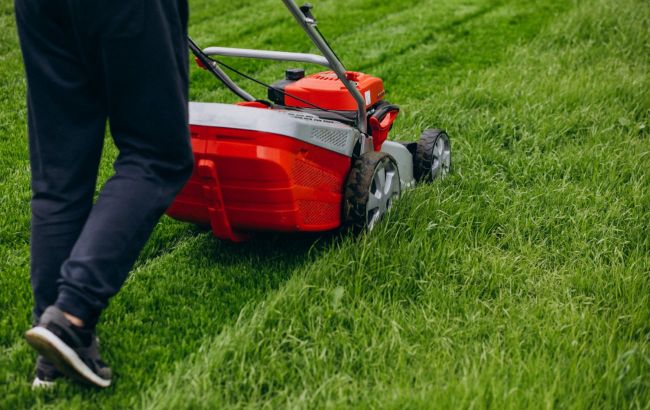5 common lawn care mistakes everyone makes
 What mistakes everyone makes in lawn care (photo: Freepik)
What mistakes everyone makes in lawn care (photo: Freepik)
Taking care of a lawn may seem like a simple task, but numerous details can turn this process into a challenging ordeal. To have a well-maintained lawn, it's important to avoid certain mistakes, according to Real Simple website.
Cutting too short
A closely mown lawn may look tidy, but it weakens the grass, making it less resistant to drought and disease. It's recommended to leave the grass at least 5-7 cm long, which helps the roots penetrate deeper into the soil and retain moisture better.
Additionally, dull blades can tear the grass rather than cut it, leading to a tired-looking lawn and increasing the risk of disease. Regularly sharpen the blades of your lawnmower to ensure a clean and precise cut.
Overwatering
Many people fear insufficient watering of their lawns, so they begin to water the lawn themselves.
However, too much water can lead to the development of fungi and diseases.
To prevent this problem, it's advisable to conduct deep but infrequent watering. This allows the soil to dry out between watering sessions, reducing the risk of diseases and promoting deeper grass root growth.
In the event of overwatering, allow the soil to dry out, which can improve drainage and root growth, allowing air, water, and nutrients to penetrate more easily.
It's important to water the lawn in the morning so that the grass has time to dry out by evening. The amount of water should be sufficient to moisten the soil to a depth of 10-15 cm.
Ignoring seasonal maintenance
Different seasons and climates require different lawn care approaches. Failing to adapt lawn care practices to the season can result in suboptimal lawn health.
It's important to create seasonal plans. In winter, focus on planning. In autumn, it's better to fertilize and clean up debris from the lawn.
Incorrect grass selection
Choosing the wrong type of grass for your climate can result in a lawn that looks poor and is prone to disease. Research which grass varieties are best suited for your area.
In dry conditions, it's better to select drought-resistant grass varieties that require less water. Not only does this conserve water, but it also reduces your lawn care workload.
Lack of fertilization
Like any plant, a lawn requires nutrients. Using fertilizers in spring and autumn helps maintain the health and vibrancy of the lawn. It's important to choose fertilizers based on soil type and lawn needs.
Additionally, regular manual weed removal or the use of herbicides will help keep the lawn clean and healthy.

